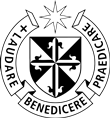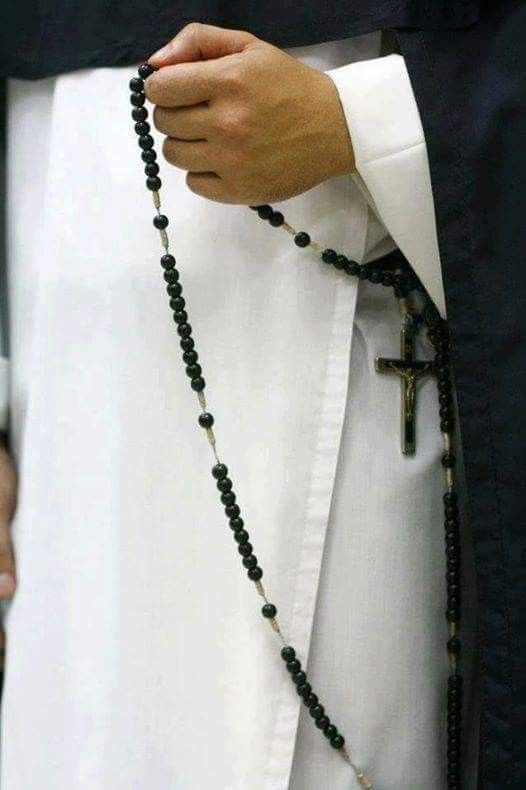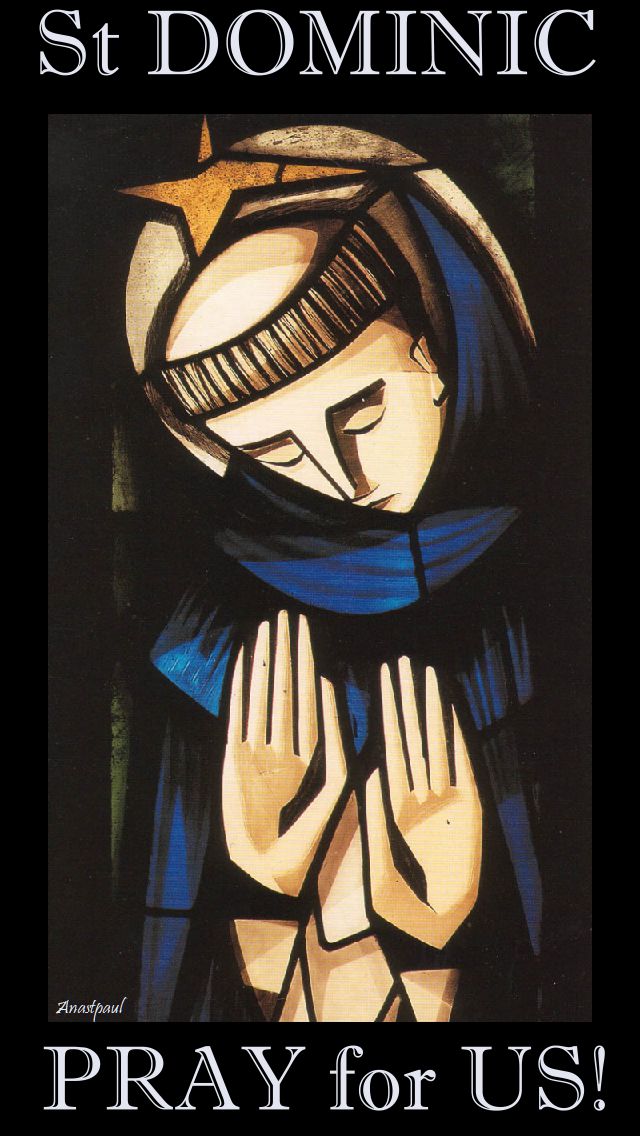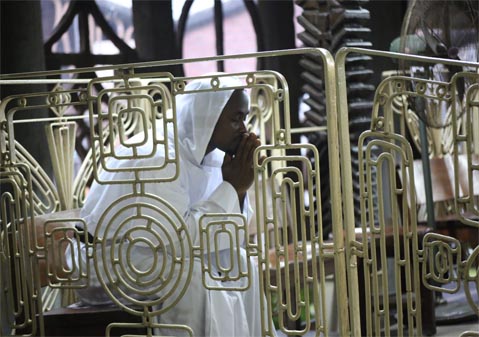
The Four Pillars

Prayer
The Eucharist and Divine Office, The Rosary and Private prayers.

Study
The Dominican Intellectual Tradition

Apostolate
Verbo et exemplo (by word and example).

Community
Community is an integral aspect of Dominican spirituality.

The Rosary & The Hours
For centuries the Order of Preachers has promoted the Rosary among the faithful, helping establish the Rosary Confraternity and prayer groups around the world. Every day Dominicans recite at least five decades, fostering devotion to the Blessed Virgin Mary and asking for her intercession. As we pray and meditate on the words and actions of Christ and his mother, we reflect on the mystery of salvation and our mission to proclaim the good news.
Prayer is simply talking with God. It is a living contact with God which opens us more fully to the indwelling of the Spirit, enabling us to better follow God's designs. Prayer for us includes the Eucharist and the Liturgy of the Hours.

The Nine Ways
Another important feature of Dominican prayer is its use of the body. The Eucharistic liturgy, with its blend of movement and gesture, engages the whole person in worship. Dominic incorporated these gestures (standing, bowing, sitting, genuflecting, kneeling, raising his arms) into his private prayer, developing what we commonly refer to as the Nine Ways. Members of the Order of Preachers continue this tradition today, enriching our common and private prayer.
Dominican Prayers also includes personal prayer, which is a regularly scheduled time to pray, study the Gospel, read literature, write down thoughts, garden prayerfully, meditate or contemplate the Lord's passion.

Intellectual Tradition
The Constitutions of the Order of Preachers states that "St. Dominic, in founding the Order, was truly innovative; he intimately linked study to the ministry of salvation (LCO, 76). Thus for 800 years the Dominicans have fiercely devoted themselves to the rigorous study of Sacred Scripture, philosophy, the natural sciences, and theology. Our study, however, does not remain in the realm of arcane speculation. Instead, it is handed on for the salvation of others through our preaching and teaching.
In the Middle Ages, many people saw study as an obstacle to prayer, which was regarded as a pious exercise of the heart. Dominic, however, saw study as an opportunity to enlighten the mind and direct the heart towards God.

Thomistic Tradition
The Code of Canon Law exhorts “study to penetrate more deeply into the mysteries of salvation, with St. Thomas in particular as their teacher” (CIC, 252, §3). The Dominicans pay particular attention to the study of St. Thomas Aquinas, O.P. His masterful adaptation of philosophy into his theological work gives his writing an unmistakable depth and clarity in the manner which he is able to speak about God.
For us, study is the point of connection between prayer and ministry. Dominicans study in order to encounter the face of Christ in the Scriptures and in the natural world, an encounter which leads to contemplation. From this contemplation flows our mission to share the love and mercy of Jesus that we have experienced with others.

Preaching
The heart of Dominican Apostolate is preaching. But the Dominican notion of preaching goes beyond homily or formal catechesis, because the foundation of preaching the word is preaching by example. This fits with the early Dominican motto, verbo et exemplo (by word and example). The way we live our lives is itself a homily. Dominicans preach in a variety of ways. We work in campus and parish ministry, teach in schools and universities, and serve as social workers and advocates for justice and peace.
We have been called to proclaim the Gospel to every corner of the world, so that every soul may come to know and love Jesus Christ. Dominicans are called to a profound life of contemplation.

Our Fraternity
Our fraternity is strengthened first and foremost when we come together for prayer, and further supported when we share the work of our brothers, and when we meet to discuss matters of importance. Learning from our elders, who pass on the wisdom and traditions of the Order of Preachers, as well as their own knowledge and experience, we discover the connection between the quality of our life and the quality of our witness to the world.
Community is an integral aspect of Dominican spirituality. A central point in recognizing the value of community for our spiritual life is to recall that God saves us through a community.

The Rule of St. Augustine
The rule of Saint Augustine states that “the chief motivation of your sharing life together is to live harmoniously in the house and to have one heart and one soul seeking God.” While it’s true that we hold everything (possessions) in common, we must also strive to be of one mind and heart in God. This goal is only possible when we look to the first community of persons — the Trinity.
Dominican spirituality views the community as a unique place of God’s presence in the world. It is through the community that we are inspired, encouraged, admonished and forgiven as we travel on our spiritual journey.
© 2022 - OP Studentate Media - All Rights Reserved

